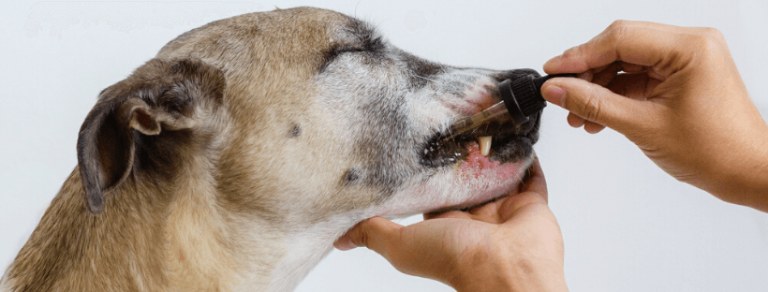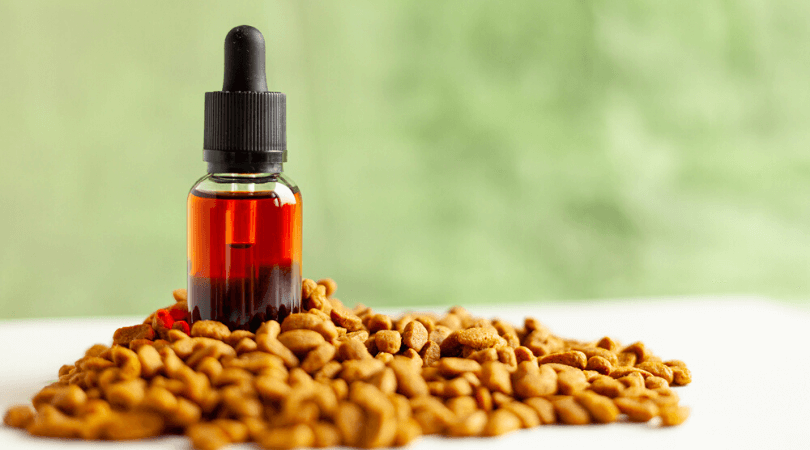Any dog parent will be perturbed at the sight of their four-legged friend falling ill or becoming anxious. When a family member is unwell, all you want to do is make him or her feel better right away. So, should you give your dog CBD?
As marijuana becomes legal in more areas and more widely accepted, people are starting to understand that their dogs could benefit from the potential therapeutic effects of the drug. With its prevalence, there is no wonder that the pet care industry has also gotten on board with many veterinarians urging for more clinical studies and cannabis companies sweeping the market with their cannabis products. But what is it exactly that you need to know if you want to give your dog CBD?
Marijuana and Cannabinoids
Marijuana is the dried flowers and leaves of the cannabis plant. It contains naturally occurring chemicals called cannabinoids. The cannabis plant produces about 80 to 100 cannabinoids and about 300 non-cannabinoid substances. Cannabinoids interact with the body’s endocannabinoid system (ECS) to maintain homeostasis. This is basically the ability to sustain biological harmonydespite changes in the world outside. There are two primary cannabinoids. The first is the mind-altering compound called delta-9-tetrahydrocannabinol or THC, which can make users high and can affect perception, mood, emotion, cognition, and motor function. The other main type of cannabinoid is cannabidiol or CBD, which is not mind-altering. However, research shows CBD could have medically useful properties.
What Is CBD and How Does It Work
CBD is a naturally occurring cannabinoid that can also be produced synthetically. It makes up about 40 percent of cannabis extracts. This cannabinoid binds to various points of the ECS, making proper dosing very important. While the specific effects are still not fully established, research into CBD has demonstrated the potential for some therapeutic effects.
According to the U.S. National Library of Medicine, research into CBD has shown promise particularly in alleviating pain and swelling, managing epileptic seizures, treating muscle spasms, and inhibiting anxiety, among other treatments that are currently being investigated.

What Is the Best Way to Administer CBD to Dogs?
As CBD gains popularity, cannabis companies have begun hitting the pet stores. They offer an array of supplements ranging from cannabis-infused powders to crackers. CBD products for animals come in many similar forms you have seen used by people. These include edibles, topical creams or balms, oils added to foods, and tinctures.
Dr. Stephanie McGrath, a neurologist at Colorado State University, is one of the very few researchers who investigated the effects of CBD in dogs. She began analyzing CBD in 2016, and one of her earliest studies examined how administering CBD by the use of a capsule, an oil, and a cream influenced how the compound moved through the dogs’ bodies.
In this study, her team gave healthy dogs a single dose of all three different delivery methods. After this, they measured different properties in the dogs’ blood over the course of 12 hours. The testing looked at how fast the CBD was absorbed, how high the blood concentration got, and how quickly the CBD was eliminated. The findings showed the best results withCBD oil. The capsule also performed relatively well, but the cream less so.
What Are the Potential Effects of CBD for Your Dog?
A recent study published in the U.S. National Library of Medicine examined the basic absorption, metabolism, and elimination, as well as the safety and pain-relieving effects of CBD-based oil in dogs suffering from osteoarthritis. The results show that CBD can help provide comfort and improve activity in dogs with this joint disease.
A year later, another study by McGrath was conducted to assess the effect of orally administered CBD as an add-on to the usual anti-epileptic prescription in epileptic dogs. The study discovered that CBD may aid in reducing the frequency of seizures in dogs suffering from idiopathic epilepsy.
While these studies were designed well and successfully peer-reviewed, they are still very preliminary and have a lot of limitations. Nevertheless, McGrath is confident in the results. She and other researchers have larger studies in progress to further investigate the effectiveness of CBD in treating osteoarthritis, epilepsy, and post-operative pain in animals.

Is CBD Safe for Your Dog?
Like humans, dogs have an ECS that lets them benefit from the potential effects of CBD. This system in the body allows the active compounds in cannabis to possibly help relieve a few symptoms.
According to a 2017 report published by the World Health Organization, CBD in its pure state appears to be safe and well-tolerated by animals. While there are no known risks if either you or your dog consumed too many CBD edibles, it is important to note that this is in contrast to THC, which can be lethal for your pets at high levels. Dogs are a lot more sensitive to THC than humans. This means that the same amount of THC that would get you high can make your pooch very sick.
Based on her research, McGrath said she is reassured with the knowledge that CBD is safe and well-tolerated in animals. However, she warned people to make sure the product is very low in THC if they’re going to administer it to a dog.
CBD Legal Status
As of Oct. 17, 2019, cannabis products are legal in Canada under the Cannabis Act. Licensed cannabis retailers can now comply with government regulatory requirements. They can now lawfully produce and sell cannabis edibles, extracts, and topicals. As of this writing, though, there are no authorized veterinary drugs containing cannabis. Since there is still a lot to understand about how the drug affects an animal’s brain, Canadian vets are not included in the Cannabis Act as practitioners who can prescribe cannabis products.
Nevertheless, there are veterinary health products permitted by the law under certain conditions. These products should only contain certain parts of the cannabis plant that are not subject to the Cannabis Act. One way to help prevent your pet from ingesting toxic ingredients, such as psychoactive cannabinoids, is to use only cannabis products that come with a Certificate of Analysis or COA. A COA is issued when an inspection firm or independent laboratory licensed by Health Canada tests the product to confirm its phytocannabinoid levels, among other things.




Comments are closed.